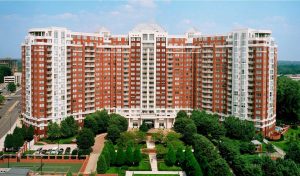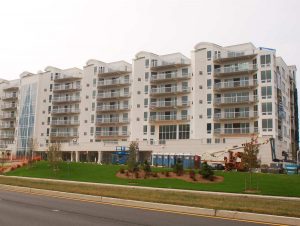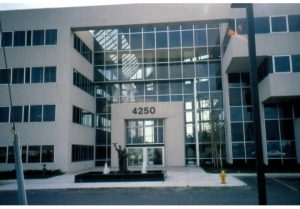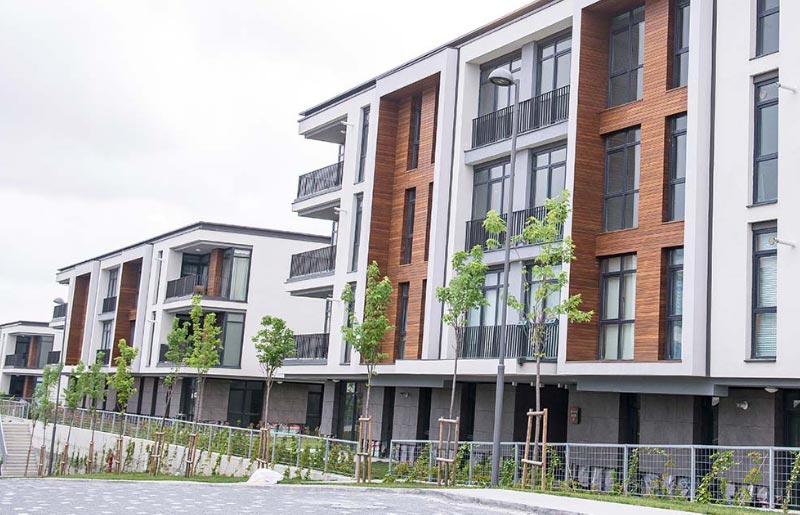
Contact Vescom
Composite Joist Structural Floor Systems New Jersey
Vescom’s composite joist construction floor system offers stronger and shallower floors at a fraction of the cost of traditional steel floor framing methods.
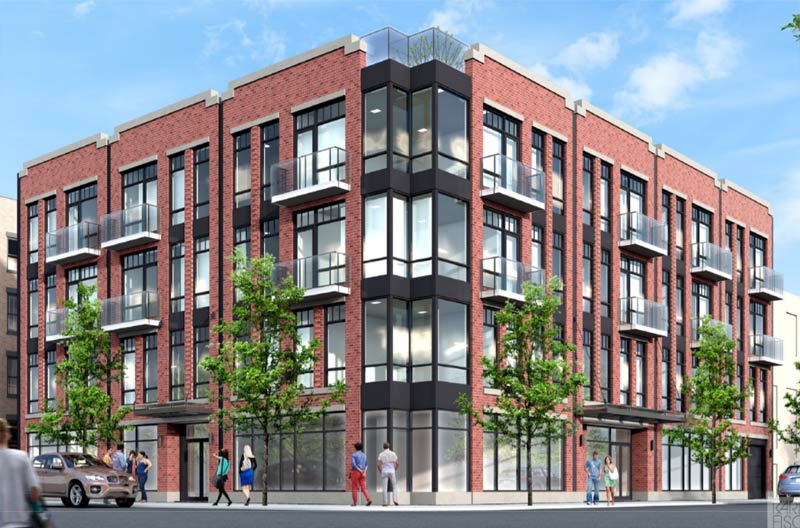
Vescom International is a steel joist and structural floor system manufacturer. The Vescom Joist Structural Floor System can be used all types of multi-story residential, multi-residential, institutional, healthcare, and commercial constructions and buildings. Vescom Joists can be used to construct structures up to 19 stories and are ideal for:
- Multi-residential constructions
- Apartment Buildings
- Condominiums
- Student Housing
- Hotel and Resorts
- Senior Living and Nursing Homes
- Medical Facilities
- Office Buildings
- And Many Other Structures
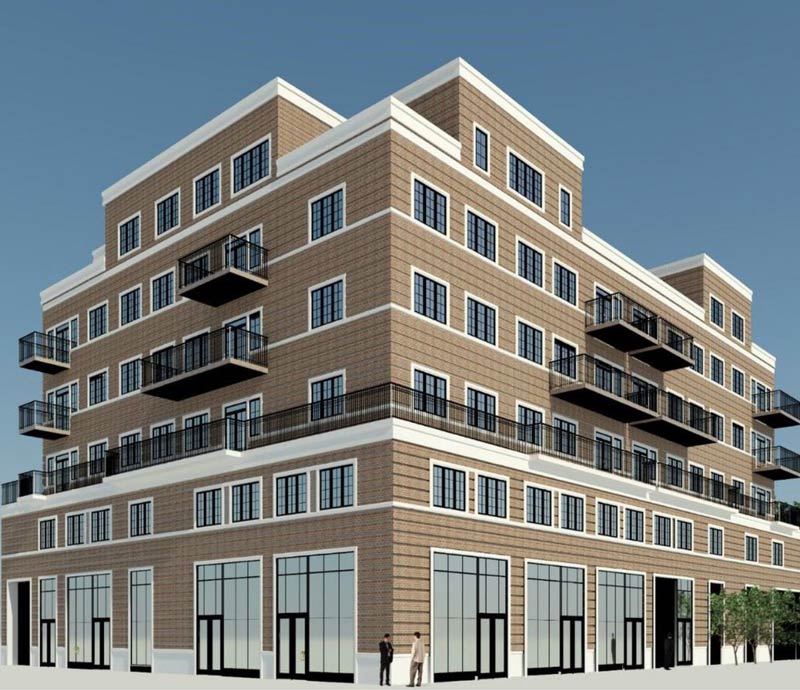
Composite Floor Joists in New Jersey, NJ
Vescom International manufactures the following composite joist flooring solutions and delivers them to New Jersey, NJ:
- Composite joists
- Composite floor joists
- Steel floor framing
- Concrete joist system
- Concrete joist support
- Steel flooring system
- Structural flooring
- Structural floor system
- Joist slab
- Structural floor systems
- Light gage steel framing
- Steel floor joists residential
- Composite building
- Structural floor
- Composite floor systems
- Steel floor system
- Composite concrete flooring
- Steel frame flooring
- Steel flooring systems
- Floor joist system
- Concrete floor joist
- Suspended floor systems
- Concrete floor joists
- Steel roof decks
- Metal deck
- Roof decking
- Steel deck
- Joist girder
- Steel girder truss
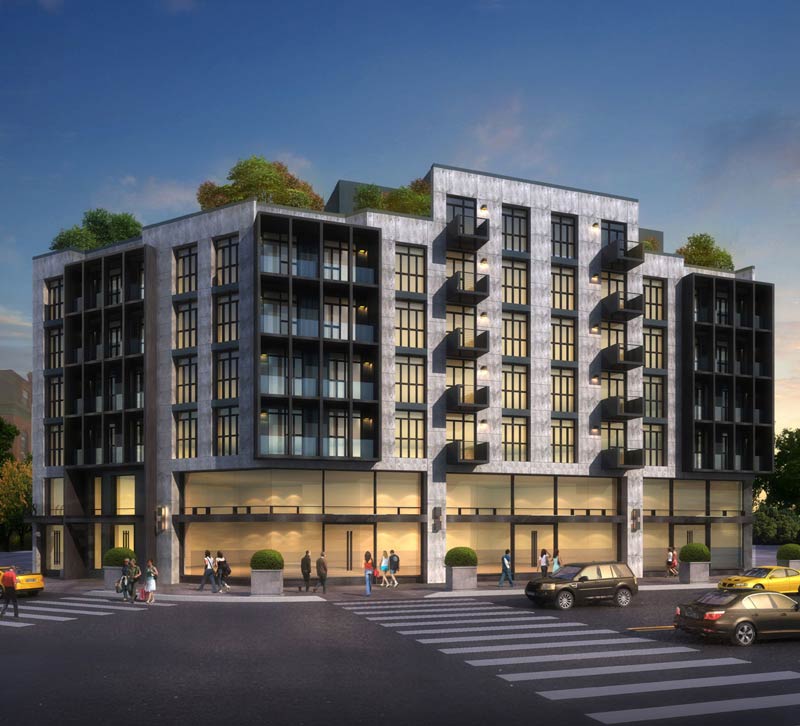
Multi-Residential Construction in New Jersey:
If you are searching for a company to provide any of the following in New Jersey, NJ, kindly consider sending your drawings to our team at Vescom. We will provide you with a quote using our composite joist system that could save you significantly on your construction costs.
- Metal deckings
- Composite deck
- Floor systems
- Rated floor
- Cold form steel
- I-span
- Steel components
- Wood joists
- Floor structure
- Steel beams
- Steel trusses
- Floor joist
- Ceiling joist
- Decking joists
- Floor trusses
- Steel joist
- Bar Joist
- Steel deck
Vescom recommends these organizations, their content and material for information about the composite joist industry and technology:
If you are searching for a company to provide any of the following, kindly consider sending your drawings to our team at Vescom. We will provide you with a quote using our composite joist system that could save you significantly on your construction costs.
Frequently Asked Questions
-
Q: What is a composite joist?
- A: A composite joist, also known as a composite steel joist, is a type of structural member used in construction to support floors and roofs. It is made by combining two or more materials, usually steel and concrete, to create a stronger and more efficient joist.
Composite joists typically consist of a steel top chord, a steel bottom chord, and a concrete slab sandwiched between them. The steel chords provide tensile strength and rigidity, while the concrete slab provides compression strength and mass. The combination of these materials results in a lightweight and durable joist that can span long distances and support heavy loads.
Composite joists are commonly used in commercial and industrial buildings, as well as in multi-story residential buildings. They offer several advantages over traditional joists, including increased strength, stiffness, and fire resistance, as well as improved acoustic and thermal performance.
-
Q: What is structural flooring?
- A: Structural flooring refers to a type of flooring system that is designed to provide both a walking surface and structural support for a building or structure. Unlike non-structural flooring, such as carpet, vinyl, or tile, structural flooring is capable of bearing heavy loads and transferring them to the building's foundation or support structure.
Structural flooring is commonly used in commercial and industrial buildings, such as warehouses, factories, and distribution centers, as well as in multi-story residential buildings. It is also used in bridge construction, where it serves as both a roadway and a structural element.
There are several types of structural flooring systems, including concrete slabs, precast concrete planks, steel decking, and composite joists. The choice of flooring system will depend on a variety of factors, including the building's design, the required load-bearing capacity, and the desired aesthetic appearance.
Overall, structural flooring plays a critical role in the overall strength and stability of a building or structure, and it is an essential component of any construction project that requires durable and reliable support.
-
Q: What are steel trusses?
- A: Steel trusses are a type of structural element commonly used in the construction of buildings, bridges, and other structures. They are typically made from steel beams arranged in a triangular pattern, with each beam forming one side of the triangle.
The triangular shape of steel trusses provides excellent strength and stability, allowing them to span long distances and support heavy loads without the need for intermediate columns or supports. This makes them ideal for use in large, open buildings and structures, such as warehouses, factories, and sports arenas.
Steel trusses can be manufactured in a variety of shapes and sizes, depending on the specific needs of the project. They can be straight or curved, and may be designed to have a single or multiple web configurations. Additionally, they can be bolted, welded, or riveted together to form larger assemblies, depending on the required load capacity and structural performance.
Overall, steel trusses are a versatile and durable structural element that offer many advantages in terms of strength, stability, and ease of construction. They are commonly used in a wide range of applications and are an essential component of many modern construction projects.
Vescom International provides exceptional structural performance, unmatched in the marketplace, for multi-level construction in the following states in The United States of America:
Alabama, AL – Alaska, AK – Arizona, AZ – Arkansas, AR – California, CA – Colorado, CO – Connecticut, CT – Delaware, DE – Florida, FL – Georgia, GA – Hawaii, HI – Idaho, ID – Illinois, IL – Indiana, IN – Iowa, IA – Kansas, KS – Kentucky, KY – Louisiana, LA – Maine, ME – Maryland, MD – Massachusetts, MA – Michigan, MI – Minnesota, MN – Mississippi, MS – Missouri, MO – Montana, MT – Nebraska, NE – Nevada, NV – New Hampshire, NH – New Jersey, NJ – New Mexico, NM – New York, NY – North Carolina, NC – North Dakota, ND – Ohio, OH – Oklahoma, OK – Oregon, OR – Pennsylvania, PA – Rhode Island, RI – South Carolina, SC – South Dakota, SD – Tennessee, TN – Texas, TX – Utah, UT – Vermont, VT – Virginia, VA – Washington, WA – West Virginia, WV – Wisconsin, WI – Wyoming, WY
VESCOM News:
A Revolution in Structure
Explore our website to see how Vescom is revolutionizing the construction industry.
Vescom Typical Details
To assist in the work of specifying professionals, we have developed typical Vescom details for their use. These details...
Fun Facts About New Jersey
- Capital: Trenton
- Year Founded: 1787
- Major Cities: Newark, Jersey City, Paterson, Elizabeth, Edison, Woodbridge
- Borders: Delaware, Pennsylvania, New York, Atlantic Ocean
- Gross Domestic Product (GDP) Millions USD: $508,003
- Population: 8,414,350
- Land Area (Sq Miles): 7,836
- High Point (Feet): 1,803
- Other Facts: “Key Industries: Agriculture including potatoes, peaches, and fishing Pharmaceuticals, finance, chemicals, telecommunications, and tourism. How New Jersey got its name: New Jersey was named after the British island of Jersey in the English Channel off the coast of Normandy. The name was chosen in honor of one of its founders Sir George Carteret who was from Jersey. New Jersey State Symbols: State Nickname: Garden State; State Slogan: Come See For Yourself; State Motto: Liberty and prosperity; State flower: Violet; State Bird: Eastern Goldfinch; State Fish: Brook trout; State Tree: Red Oak; State Mammal: Horse; State Foods: Highbush Blueberry. Becoming a State: Date Admitted: December 18, 1787; Number Admitted: 3; Prior Name: Province of New Jersey, then sovereign state in Confederation; Postal Abbreviation: NJ. The Geography of New Jersey: Total Size: 7,417 sq. miles (source: 2003 Census); Geographical Low Point: Atlantic Ocean at Sea Level (source: U.S. Geological Survey); Geographical High Point: High Point at 1,803 feet, located in the county/subdivision of Sussex (source: U.S. Geological Survey); Central Point: Located in Mercer County approx. 5 miles southeast of Trenton (source: U.S. Geological Survey); Counties: 21 (source: National Association of Counties); Bodies of Water: Atlantic Ocean, Delaware Bay, Hudson River, Delaware River. Famous People: Buzz Aldrin – Astronaut; Judy Blume – author of young adult books; Grover Cleveland – The 22nd and 24th President of the United States; David Copperfield – Magician; Michael Douglas – Actor; Thomas Edison – Inventor who had his famous lab in Menlo Park, New Jersey; Whitney Houston – Singer; Derek Jeter – Baseball player for the New York Yankees; Jon Bon Jovi – Rock singer for the band Bon Jovi; Jack Nicholson – Actor; Shaquille O’Neal – Professional basketball player; Queen Latifah – Actress and rapper; Bill Parcells – NFL football coach; Frank Sinatra – Singer and actor; Bruce Springsteen – Rock singer and songwriter; Meryl Streep – Actress; Dave Thomas – Founder of Wendy’s fast-food restaurant. More Fun Facts: Over 100 battles have been fought on New Jersey soil.; New Jersey has the greatest population density of any state, making it the most crowded.; New Jersey is a state of inventions. The FM Radio, the light bulb, the motion picture camera, and transistors were all invented in New Jersey.; The Atlantic City Boardwalk was the world’s first boardwalk.; New Jersey is named after the Isle of Jersey, an island located off the coast of Normandy, France.; The streets on the game of Monopoly are named after streets in Atlantic City.; The first professional basketball game was played in Trenton in 1896 between the Trenton YMCA and the Brooklyn YMCA. Players were paid $15 each.; President Grover Cleveland was born in New Jersey. Other Famous Peoplefrom New Jersey include Bruce Springsteen, Judy Blume, Bon Jovi, and Frank Sinatra.; Other nicknames include the Clam State and the Diner Capital of the World.; Professional Sports Teams: New Jersey Devils – NHL (hockey); New York Giants – NFL (football); New York Jets – NFL (football); New York Red Bulls – MLS (soccer).” Citation: Nelson, Ken. “United States Geography for Kids: New Jersey .” Ducksters, Technological Solutions, Inc. (TSI), https://www.ducksters.com/geography/state.php?State=New Jersey
- Page ID: New_Jersey_United_States_30
- Set ID: United_States_State

